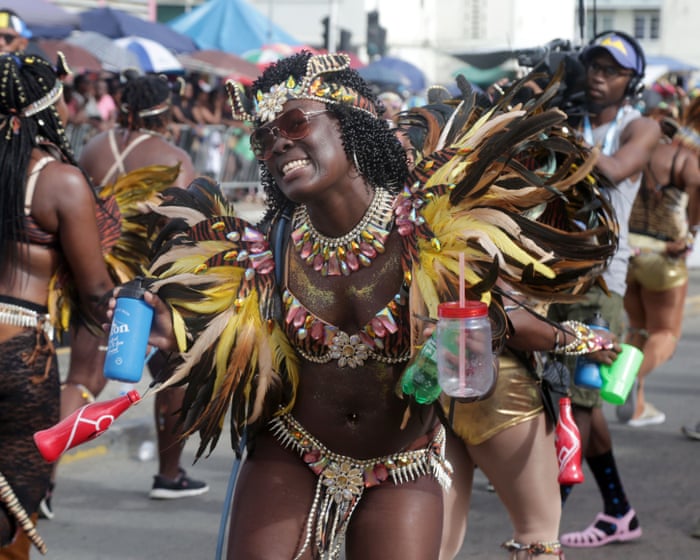American Eagle, a U.S.-based fashion brand known for selling jeans, fitted “baby” tees, and cropped sweatshirts primarily to young girls and teens, is facing criticism over its latest ad campaign. The ads feature 27-year-old actress Sydney Sweeney, known for White Lotus and Euphoria, with critics accusing the brand of using eugenics-inspired language to sell denim.
In the campaign, Sweeney poses in a denim shirt and baggy jeans while a male voiceover says, “Sydney Sweeney has great jeans.” One viral clip shows her pasting a poster on a billboard that reads, “Sydney Sweeney has great genes jeans.” Another since-deleted video featured Sweeney—blonde-haired and blue-eyed—saying, “Genes are passed down from parents to offspring, often determining traits like hair color, personality, and even eye color. My jeans are blue.”
Critics quickly called out the ad’s wordplay, with one TikTok user comparing it to “fascist propaganda,” noting that “a blonde-haired, blue-eyed white woman talking about her good genes is Nazi propaganda.” Comments on the brand’s social media ranged from “This feels like subtle 1930s Germany” to “The woke crowd needs to leave the room.” Even Senator Ted Cruz weighed in, sarcastically posting on X: “Wow. Now the crazy Left has come out against beautiful women. I’m sure that will poll well…”
Sophie Gilbert, a writer at The Atlantic and author of Girl on Girl, which examines misogyny in pop culture, said the slogan “obviously winks at the modern right’s obsession with eugenics.” Dr. Sarah Cefai, a gender and cultural studies expert, questioned the decision, asking, “What were they thinking, letting a white supremacist fantasy air so blatantly?”
Aria Halliday, a professor specializing in Black women’s cultural influence, wasn’t surprised, noting a trend of media “reasserting the beauty of thin, white, blonde, blue-eyed people” and brands promoting “conservative white values.”
Critics also took issue with the campaign’s focus on Sweeney’s body. One clip zooms in on her chest as she says, “My body’s composition is determined by my jeans,” before cutting to her face as she snaps, “Hey, eyes up here!” Cefai called the ad’s voyeurism “a racialized fantasy of whiteness.” American Eagle did not respond to The Guardian’s request for comment.
Fashion ads often court controversy, but denim campaigns have a particularly provocative history. In the 1980s, 15-year-old Brooke Shields famously said in a Calvin Klein ad, “You know what gets between me and my Calvins? Nothing.” In 1995, another Calvin Klein ad featuring models like Kate Moss unbuttoning their jeans in a dimly lit basement was accused of hinting at child exploitation.
The American Eagle backlash comes as the U.S. sees a rise in far-right ideologies, making the campaign’s messaging even more contentious.A cultural shift is reinforcing traditional whiteness and conservative gender roles, while the MAGA movement has been associated with promoting a “soft eugenics” mindset. In 2025, new trends are reviving old stereotypes. For Halliday, the popularity of GLP-1 weight-loss drugs and the record-high unemployment rate among Black women in the U.S. contribute to a broader cultural shift that refocuses on whiteness as the default image of America.
Fashion imagery is mirroring this regression. Controversial photographer Terry Richardson is working with magazines and brands again, while Dov Charney—former American Apparel CEO who was ousted over sexual misconduct allegations—is now creating content for his new brand that echoes the hypersexualized style of his past campaigns.
For American Eagle, whose main audience is young women aged 15 to 25, tailoring a campaign to the male gaze feels outdated, if not unsettling. However, Jane Cunningham, co-author of Brandsplaining: Why Marketing is (Still) Sexist and How to Fix It, suggests that many Gen Z consumers, accustomed to hypersexualized content on social media, might embrace the strategy. “They may see overt sexuality as a way of ‘owning’ their image,” she says, citing pop star Sabrina Carpenter as another example of someone accused of catering to the male gaze.
Halliday notes that while Black girls are rarely the focus of ads, some may still be drawn to the jeans. “The desire to be seen as beautiful is powerful,” she says.
Gilbert points out that many Gen Zers haven’t encountered this kind of provocative advertising before, comparing it to 90s Wonderbra ads with their “Hello Boys” tagline. But she believes they’ll see through it. “They’re incredibly media-literate,” she says. “They have the tools to dissect marketing tactics in a way I never could as a teen in the 90s—and they know when they’re being manipulated, which seems to be the case here.”
She adds, “This whole campaign feels like it was designed in a boardroom to spark outrage and grab attention.” And from a business standpoint, it’s working—American Eagle’s stock has risen nearly 18% since the campaign launched.
For the full version of this newsletter—including this week’s trending topics—subscribe to Fashion Statement and get it delivered every Thursday.



